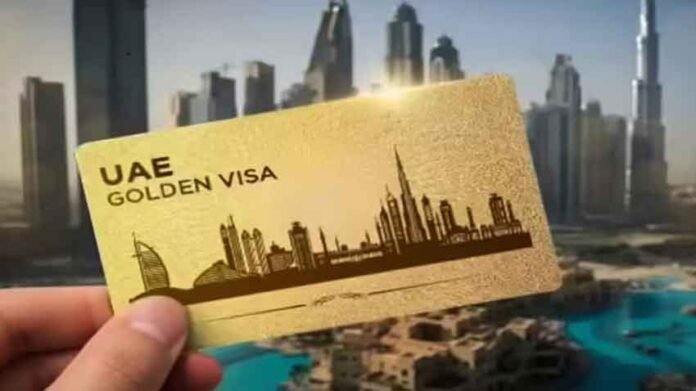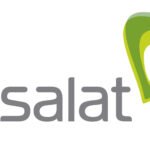The UAE has now launched a new spin on its well-liked Golden Visa scheme, allowing benefactors to Waqf projects, those eternal Islamic endowments, collect 10-year residency via their donations. This development highlights the Emirates’ ability to combine philanthropy with shrewd incentives, attracting worldwide givers who wish to contribute to enduring community endeavors in exchange for a stake in one of the globe’s most energetic powerhouses.
This article breaks down the specifics of this thrilling news, detailing Waqf fundamentals, eligibility criteria, the application process, and the larger context for humanitarian work in the UAE.
The breathtaking Dubai skyline, which represents the UAE’s fusion of innovation and possibility.
The UAE Golden Visa: A Brief Introduction
The Golden Visa is a permanent residency plan that allows skilled people, investors, and now philanthropists to reside, work, and prosper in the UAE without the necessity of a local sponsor. Introduced in 2019, the scheme seeks entrepreneurs, scientists, artists, and high flyers in the areas of medicine, engineering, and culture. It provides a renewable 10-year permit, deviating from the traditional short-term visas based on employment or real estate.
This visa makes life easier for holders since it permits longer stays overseas without endangering cancellation, ideal for globetrotters. Spouse and children of up to the age of 25 (for men) and sometimes parents are covered under family sponsorship, making the deal family-friendly. Over time, the UAE has added categories of property investors with holdings worth AED 2 million and above, high-achieving students, and humanitarian donors.
The newest addition for Waqf donors perfectly slots into this shift, encouraging those who drive social good. It emphasizes the nation’s efforts to become a world leader in sustainable development and tolerance.
What is Waqf Exactly?
An example of the four pillars of Waqf, emphasizing its essentials.
Waqf is one of the pillars of Islamic charity, where an individual gives away property such as money, land, or structures to be utilized by the general public for eternity. They are put in place and freeze for perpetuity, neither sold nor inherited. Rather, the proceeds are invested in recurring initiatives in education, medical care, mosques, or community assistance, causing a tsunami of advantages across generations.
In the UAE, institutions such as Awqaf Dubai oversee these funds in accordance with Sharia, investing to have maximum impact. It’s like a charitable trust on steroids, funding everything from schools and clinics to social welfare initiatives. Donors, or “waqifs,” dedicate to causes that are aligned with national objectives, so their donations continue to give back long after they’re no longer around.
This system dates back centuries in Muslim tradition but evolves contemporarily in the UAE, merging faith-based philanthropy with developmental strategy. It’s all about sustainability, converting one-off giving to ongoing support for society.
The New Waqf Donor Category
Released in October 2025 at GITEX GLOBAL in the Dubai World Trade Centre, this category is under “financial supporters of humanitarian work” according to Cabinet Resolution No. 65 of 2022. A major collaboration between GDRFA-Dubai and Awqaf Dubai clinches the deal, allowing the endowments foundation to nominate eligible donors for Golden Visas.
The campaign celebrates donors who support Waqf projects, making Dubai a global hub for philanthropy. Authorities describe it as a move toward people-centered cities, driving solidarity and creativity in charity.
Lt. Gen. Mohammed Ahmed Al Marri of GDRFA-Dubai terms it an “advanced model of governmental integration” that enables donors to spearhead community change. Ali Mohammed Al Mutawa of Awqaf Dubai further states that it solidifies endowment work as a partner in sustainable progress, acknowledging givers’ contribution to social responsibility.
This category opens the door for international donors, incorporating residency benefits with impactful outcomes.
Who is Eligible and What to Give
Eligibility remains simple yet focused. Donors must donate a minimum of AED 2 million to a sanctioned Waqf cause managed by Awqaf Dubai or such organizations. This amount guarantees meaningful contribution, and the donation should abide by Sharia principles, irrevocable and committed to public benefit.
Applicants must also hold a bachelor’s degree from a recognized university, demonstrating a level of education commensurate with the high standards of the program. Both UAE nationals and expats are eligible, and even individuals eligible through other routes of Golden Visa can choose this route.
Awqaf Dubai validates the donation and provides a nomination letter, which is used by GDRFA-Dubai to grant the visa. A joint committee coordinates everything, and there’s transparency as per humanitarian objectives.
If a project fails, the visa remains secure as long as the donation was authentic—Awqaf takes care of any rerouting. Group donations don’t work; every individual must reach the AED 2 million threshold individually.
Step-by-Step Application Process
A sample UAE Golden Visa, representing long-term residency perks.
Getting started involves teaming up with Awqaf Dubai to pick a project and seal the endowment deal. Once verified, they send a nomination letter within a week or two.
Next, file documents to GDRFA-Dubai: copies of passport, photos, proof of degree, and the nomination. Apply through the GDRFA Smart Services website or Amer Centres. Foreigners can take a six-month entry permit to finish in-country.
Then there are medical tests and biometrics, usual procedures. Pay government charges, and the committee considers. Approval gets the 10-year visa and Emirates ID within approximately five weeks in total.
The process is streamlined with digital tools making it fly.
Benefits of Having a Golden Visa
Apart from residency, owners live, work, or study anywhere in the UAE freely, without a sponsor. Sponsor family members with ease, even parents in most instances.
Travel ease excels: remain overseas for more than six months visa-free. Employ domestic staff, enjoy fast-track facilities, and utilize the UAE’s thriving economy.
For Waqf donors, it enhances status as respected humanitarians, creating networks in philanthropy and commerce.
Why This Matters for Humanitarian Efforts
This category increases Waqf funding, directing more into education, health, and community initiatives. It draws international philanthropists, triggering partnerships and innovation in philanthropy.
By associating charity with residence, the UAE builds up its humanitarian influence, in line with visions of tolerance and sustainability. Watch out for an increase in endowments, knitting together social cohesion and global connections.
Conclusion
The UAE’s Golden Visa for Waqf donors is a brilliant combination of giving and opportunity, encouraging philanthropists to invest in enduring change while reaping residency benefits. From the simple application process to the general benefits, the initiative showcases the Emirates’ progressive attitude. With increased donors coming forward, it holds promise for more affluent humanitarian landscapes and a better-connected world.










